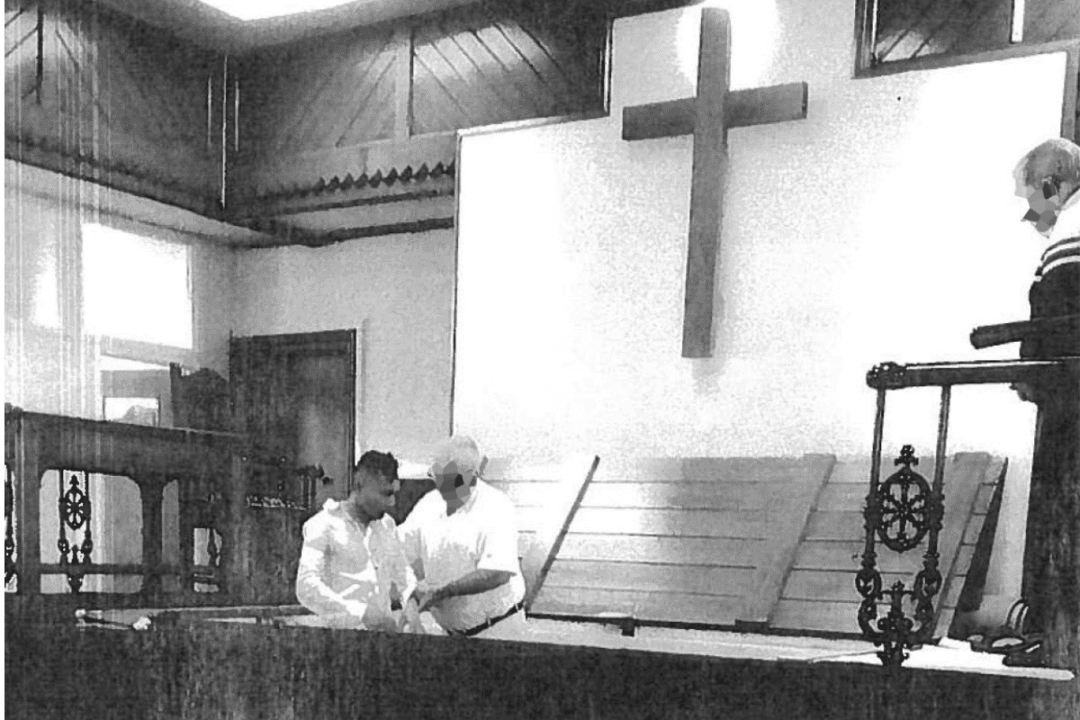A judge granted Abdul Ezedi asylum because he believed he was a genuine convert to Christianity, despite having expressed concerns the convicted sex offender was a liar, released court documents reveal.
Judge WK O'Hanlon, who sits in the First-tier Tribunal (Immigration and Asylum Chamber), said in a ruling dated Nov. 10, 2020, that Ezedi had “not been honest in several aspects of his account,” describing problems which caused him to “doubt” his “credibility.”
However, the judge later said the courts were “not unfamiliar with the difficulties created by appellants who have not been truthful but who may still be at risk,” adding, “We must be very careful not to dismiss an appeal just because an appellant has told lies.”
In his ruling, Judge O'Hanlon said: “Having considered all of the evidence before me in the round, notwithstanding my concerns as to the honesty of the appellant [Ezedi] in relation to certain aspects of his account, I find that the appellant had been consistent in his evidence with regard to his conversion to Christianity.”
“Having taken all of these factors into account, I am satisfied … the appellant has undergone a genuine conversion from his former Muslim faith to Christianity and that accordingly … would be at risk in the event of return to Afghanistan. I therefore allow his asylum appeal,” he added.
Afghan national Ezedi arrived in the UK on Jan. 8, 2016, and had a series of failed legal attempts to claim asylum before Judge O'Hanlon’s 2020 ruling.
‘Compelling’ Evidence From Reverend
In announcing his decision to grant Ezedi asylum, Judge O'Hanlon said he found the “most compelling evidence” that the Afghan national had converted from Shia Islam to Christianity was from the Rev. Roy Merrin, the former ministry team leader at Grange Road Baptist Church in Jarrow, South Tyneside.The reverend said he had known Ezedi for four years and that he was a regular churchgoer. According to court documents, Mr. Merrin told the court he was “aware of people who fraudulently claimed conversion with ulterior motives in relation to asylum but did not consider the appellant [Ezedi] was such a person.”
“This showed he [Mr. Merrin] was alive to the possibilities of being used by asylum claimants but did not consider that appellant was such a case,” court documents said.
Baptists Together, an alliance of churches of which Grange Road is a member, said in response to the document release that it “did not corporately support or sponsor” the asylum application, and the personal letter of support “commenting solely on Abdul Ezedi’s observed faith journey was written by a retired Baptist Minister.”
Church workers had also described Ezedi as a “pleasant, friendly, and cooperative man,” and someone who was “always willing to help,” in supportive letters supplied to the court.
Escorted at Church After Sexual Assault Convictions
In January 2018, Newcastle Crown Court handed Abedi a suspended sentence after he pleaded guilty to charges of sexual assault and exposure. He was placed on the sex offender’s register for 10 years and ordered to carry out 200 hours of unpaid work.
Ezedi had started to attend the Baptist church in Jarrow in February 2016, one month after he arrived in the UK. He then did the evangelistic Alpha course and was baptised in June 2018.
Court documents revealed Ezedi had made an agreement to be escorted at church services after being convicted of sexual offences.
An undated document entitled “safeguarding contract” and in Ezedi’s name outlined that he had to “stay in the vicinity” of an appointed male supporter during church services and was not allowed to sit alone “at any time.”
Home Office Did Not Accept Conversion as Genuine
The Home Office rejected his initial asylum claim in May 2016 and courts later rejected his appeal.In March 2019, he challenged the rejection of his asylum application on grounds he feared, as a convert to Christianity, he was at risk of persecution should he be sent back to Afghanistan.

During the immigration tribunal, Ezedi’s lawyers argued that the Afghan “enjoys practising and sharing his Christian faith with others.” They said that should he be returned to his home country, the punishment for conversion in sharia law “would be execution.”
The Home Office’s legal team said the government department did not believe Ezedi’s conversion to Christianity was “genuine and long-lasting.”
According to court records of the Home Office’s submissions, Ezedi had been unable to demonstrate a “clear understanding of Christian principles and beliefs.”
The convicted sex offender was “prepared to deceive” and “use religion for his own ends,” the Home Office said.
Asked about the court records, science minister Andrew Griffith said on Wednesday that the government’s Safety of Rwanda (Asylum and Immigration) Bill would help prevent future cases similar to that of Ezedi.
Mr. Griffith told Sky News the proposed law would “apply to this case, as it would many other cases that people are concerned about.”
The progress of the bill is delayed following multiple defeats in the House of Lords last week, namely over concerns about human rights and judicial oversight.
“We are a couple of busloads of peers away in terms of the votes to be able to get that through the House of Lords and then that will create the system that we want, that would have prevented this tragic case,” Mr. Griffith said.






